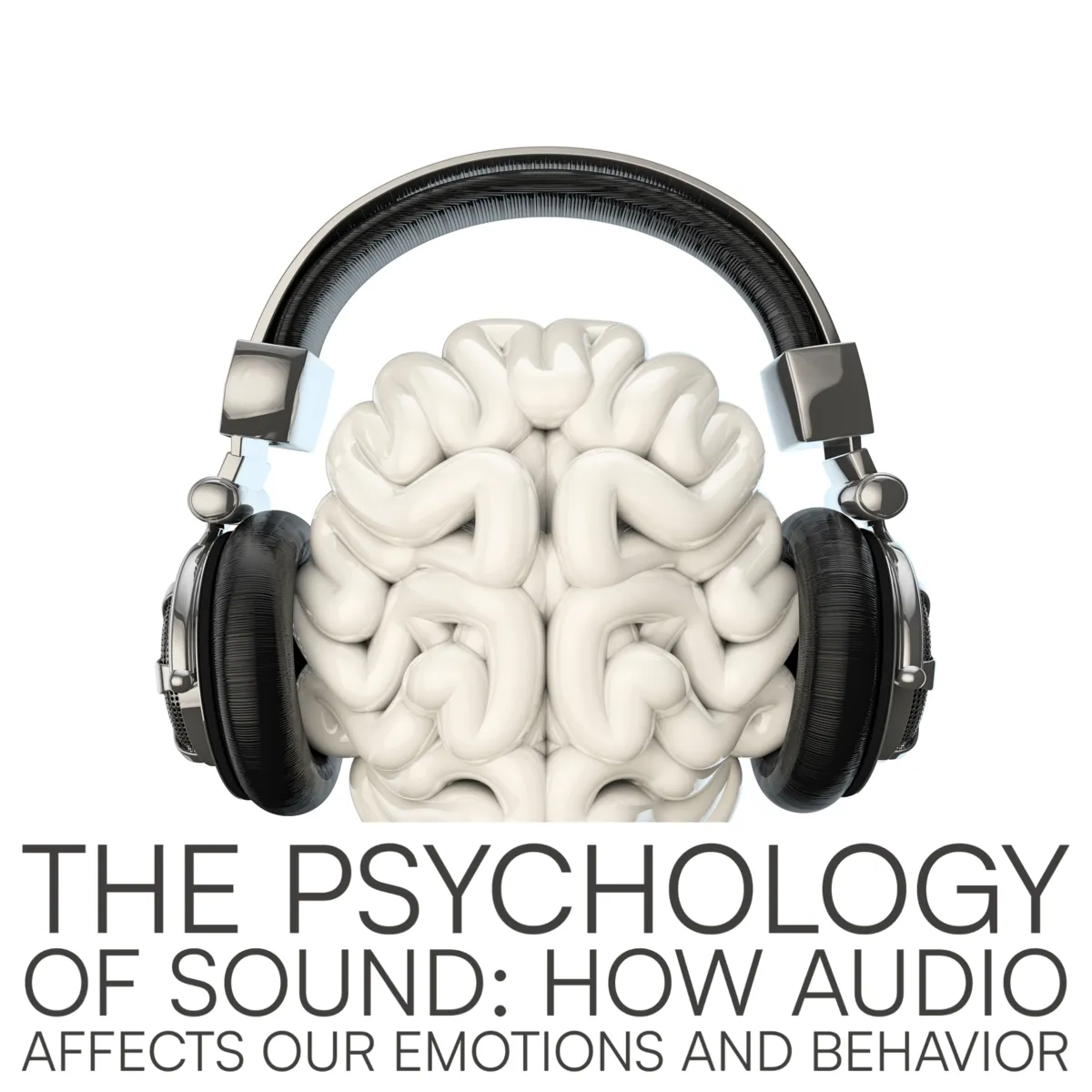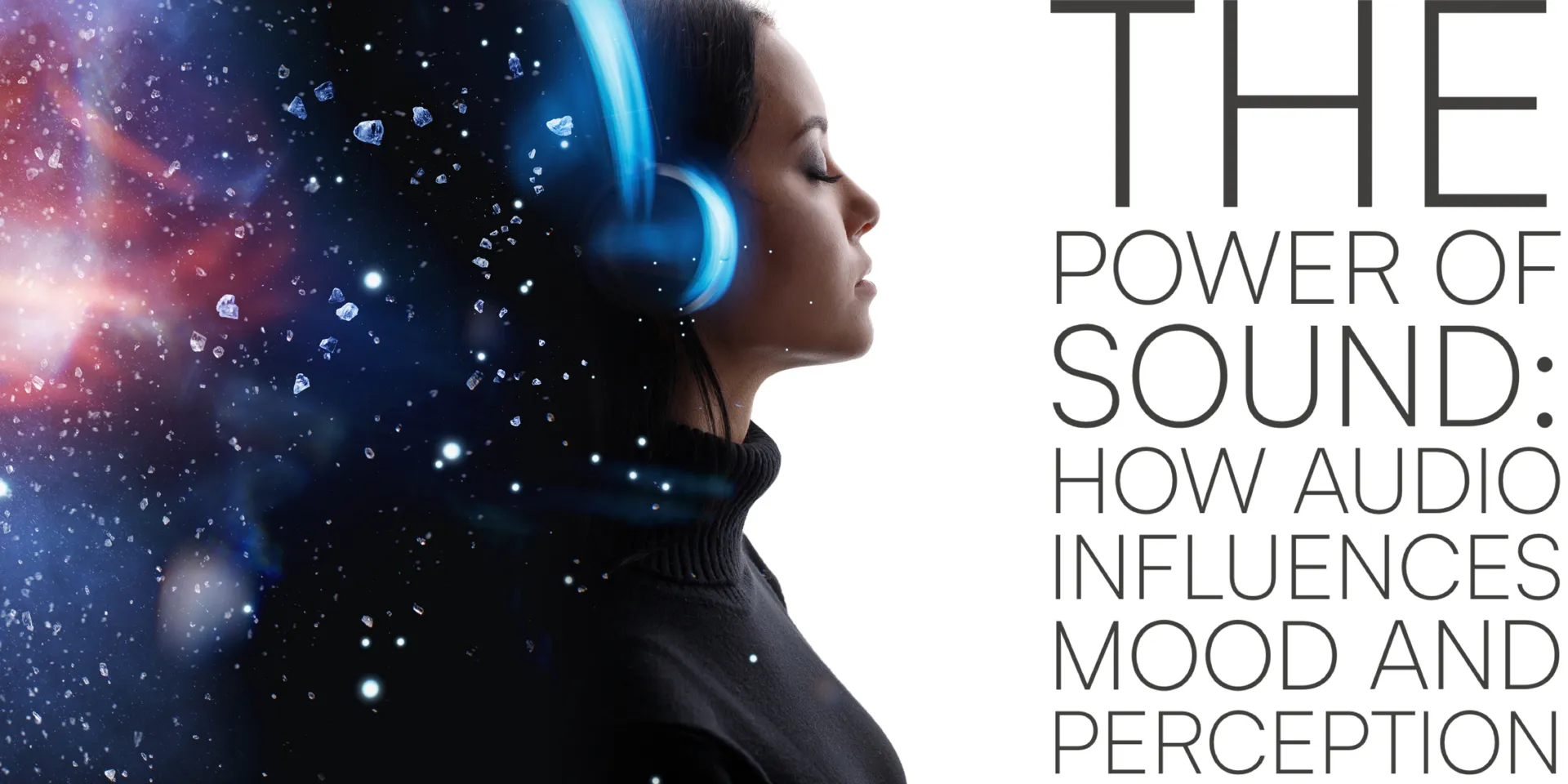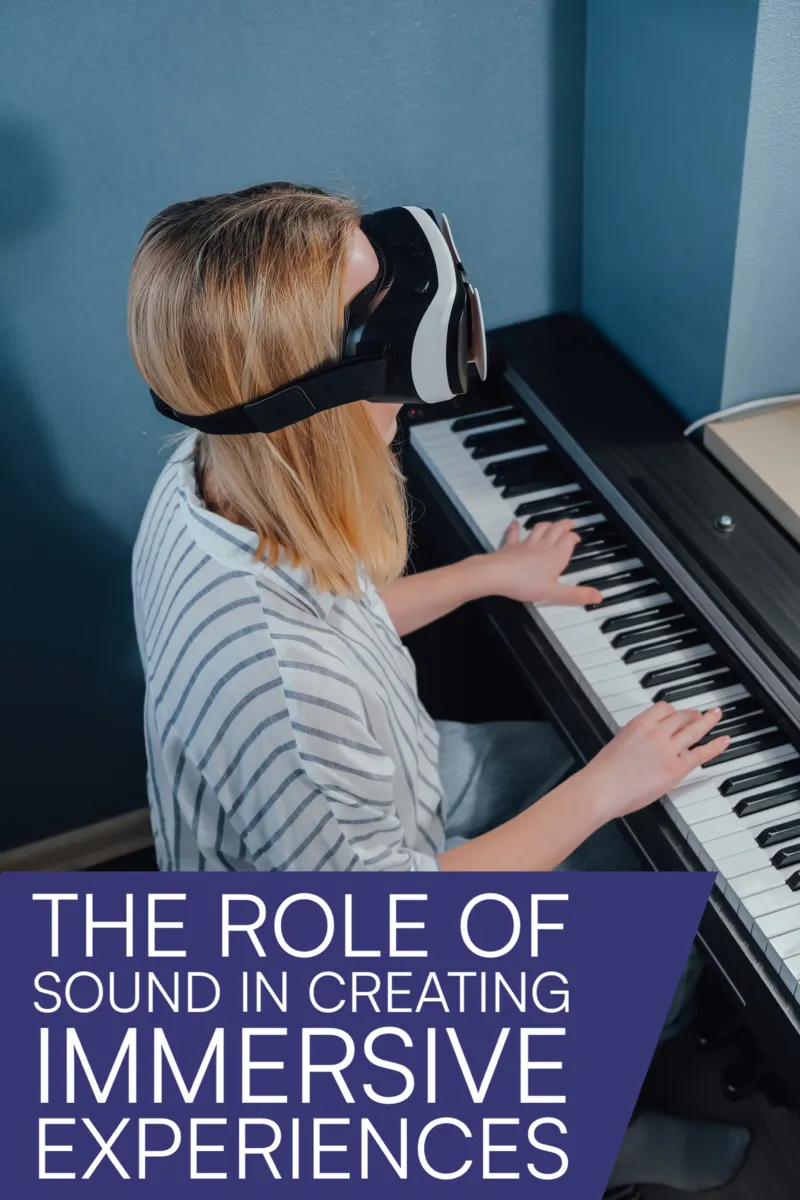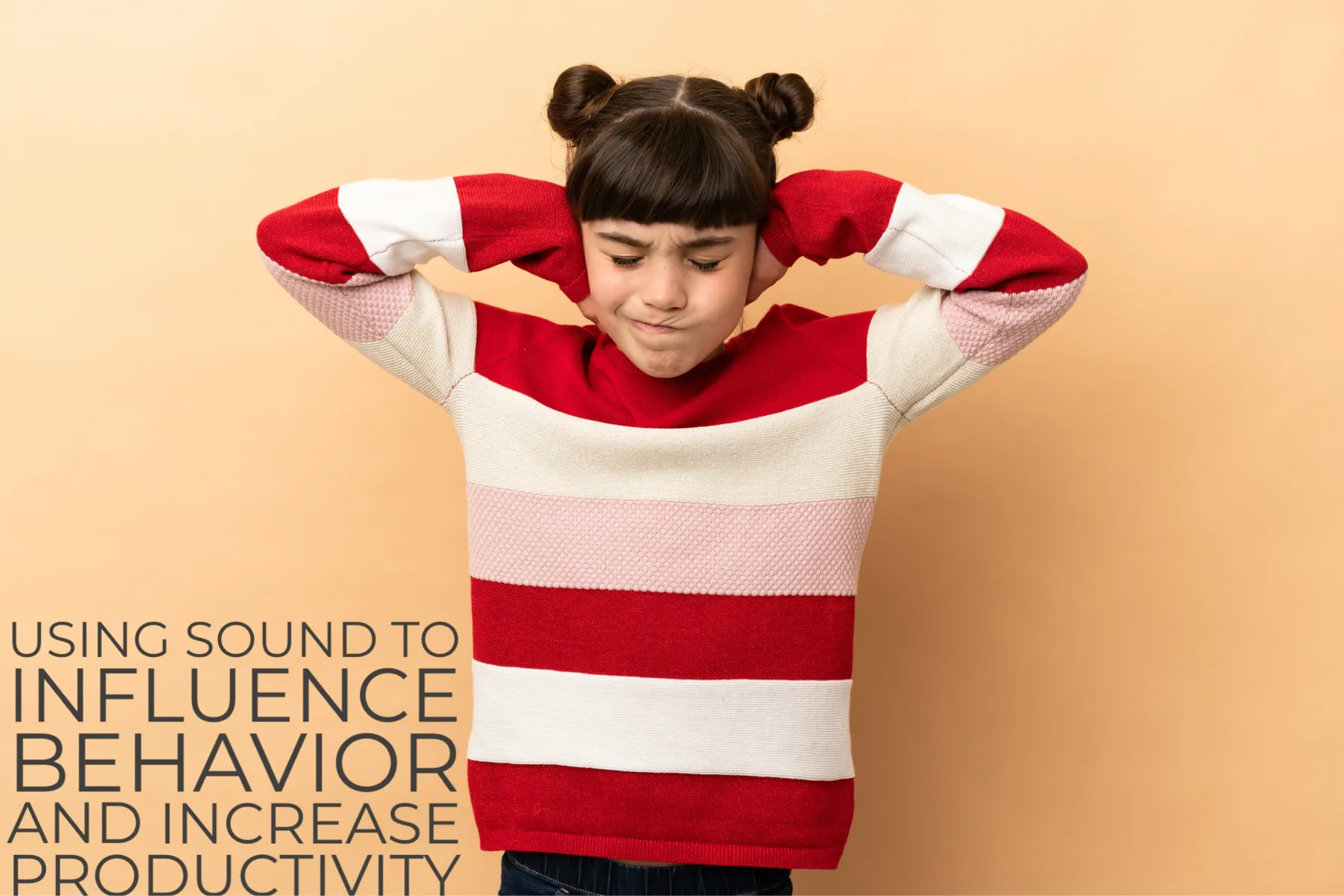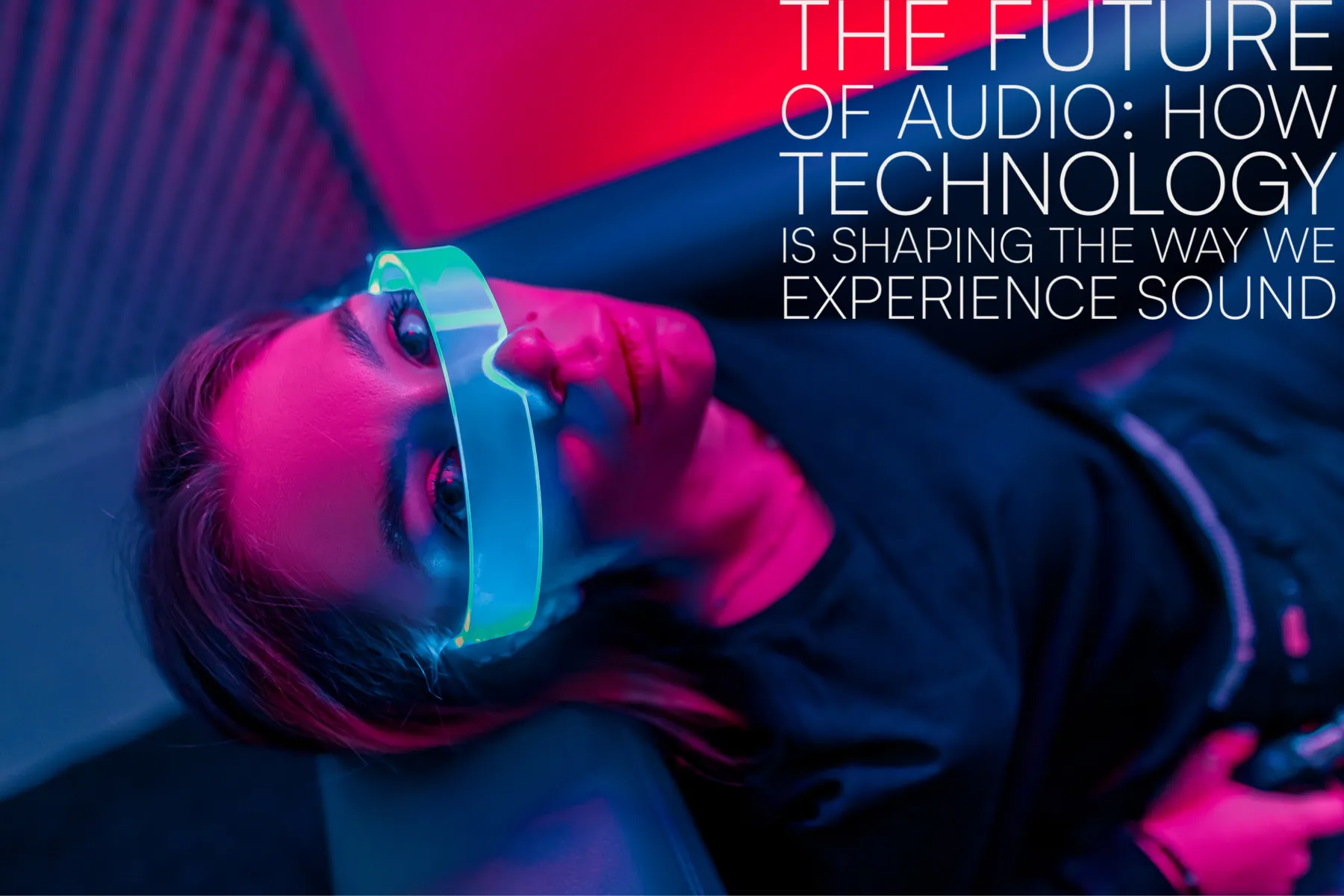Sound is a powerful force that can significantly influence our emotions and behavior. From the music we listen to on our commute to the sound design in our favorite movies, audio plays a significant role in shaping our experiences. In this article, we'll explore the psychology of sound and how it impacts our daily lives.
The Power of Sound: How Audio Influences Our Mood and Perception
First, let's discuss the power of sound to influence our mood and perception. Music, in particular, has the ability to evoke strong emotions and alter our state of mind. For example, upbeat and energetic music can lift our mood and give us a boost of energy, while slower and more mellow music can relax and calm us. The sound design in movies and video games can also influence our perception of a scene and enhance the overall immersive experience. This can be something like, increasing the pitch of a sound over a period of time can add tension and even anxiety to the environment of the listener - as commonly heard in EDM circa 2010 and in horror movies.
The Science Behind Music's Emotional Impact
The science behind music's emotional impact is complex and involves multiple factors, including tempo, melody, harmony, and lyrics. Different musical elements can trigger different emotional responses, and the brain's reward system is often involved in the process. For example, hearing a song that brings back happy memories can trigger the release of dopamine, a neurotransmitter associated with pleasure and reward.
The Role of Sound in Creating Immersive Experiences
In addition to influencing our emotions, sound plays a significant role in creating immersive experiences. Whether it's a virtual reality game or a live concert, the use of sound can transport us to another place and enhance our sense of presence. Surround sound systems and headphones can also contribute to the sense of immersion, as they allow us to experience sound from all directions. There’s a reason they say that audio is more than 50% of the video. Without audio, your willingness to sit through a silent video drops faster than even if the video quality itself is bad. If the audio is bad, that can override even the best-shot videos.
Noise Pollution and Its Negative Effects on Mental Health
However, sound can also have negative effects, particularly in the form of noise pollution. Excessive noise can disrupt our sleep, increase stress and anxiety levels, and negatively impact our overall mental health. It's important to be aware of the volume and content of the audio we expose ourselves to and take steps to reduce unnecessary noise when possible. Some sounds like someone chewing can even significantly raise our stress levels. Though interestingly enough some versions of these sounds can be pleasant like the vocalizations found in ASMR.
Using Sound to Influence Behavior and Increase Productivity
Sound can also be used to influence behavior and increase productivity. For example, some companies have implemented white noise or ambient music in their offices to help workers focus and reduce distractions. Music can also be used as a motivator, with some people finding that listening to fast-paced music helps them work out harder and longer. Interestingly, we find that music with no words is very helpful for working, though music with more lyrics can be overly distracting.
The Healing Power of Sound Therapy
In recent years, sound therapy has gained popularity as a form of alternative medicine. Sound therapy involves the use of specific frequencies and vibrations to promote relaxation and healing. Techniques such as chanting, singing bowls, and gongs are believed to have therapeutic effects on the body and mind.
The Future of Audio: How Technology is Shaping the Way We Experience Sound
Finally, let's discuss the future of audio and how technology is shaping the way we experience sound. With the advent of virtual and augmented reality, the use of 3D audio like Atmos is becoming more prevalent. This technology allows us to experience sound as if it's coming from a specific location in space, further enhancing the sense of immersion. With the continued development of audio technology, it will be interesting to see how it continues to influence and shape our experiences. And in fact, we’re seeing a massive effort by companies like Apple to push formats like Dolby Atmos to things like sound bars and Air Pods.
The interesting part is when we ad AI to the fold to take care of more of the menial tasks we take care of in audio. With programs like Adobe’s AI which uses AI to solve common podcasting issues - and can even make your crappy cellphone recording of your podcast sound like it was made with a nicer mic. Podcasts could even evolve to a point where it looks and sounds like it's coming from your living room - not some random warehouse in Austin.
The psychology of sound is a complex and fascinating topic that touches many aspects of our lives. From influencing our emotions and behavior to creating immersive experiences, sound plays a significant role in shaping our world. Understanding the power of sound can help us make informed choices about the audio we expose ourselves to and enhance our overall well-being.

